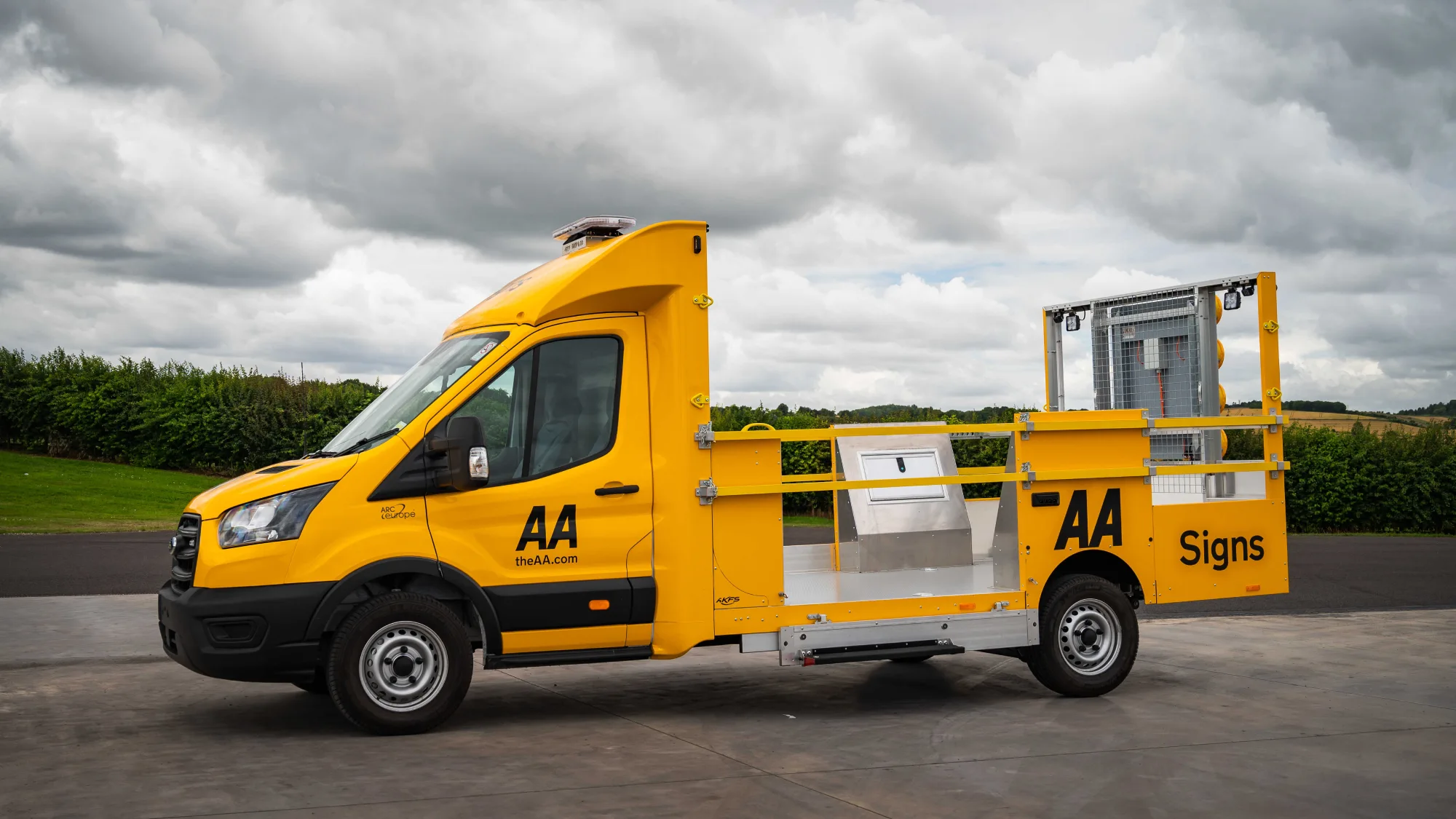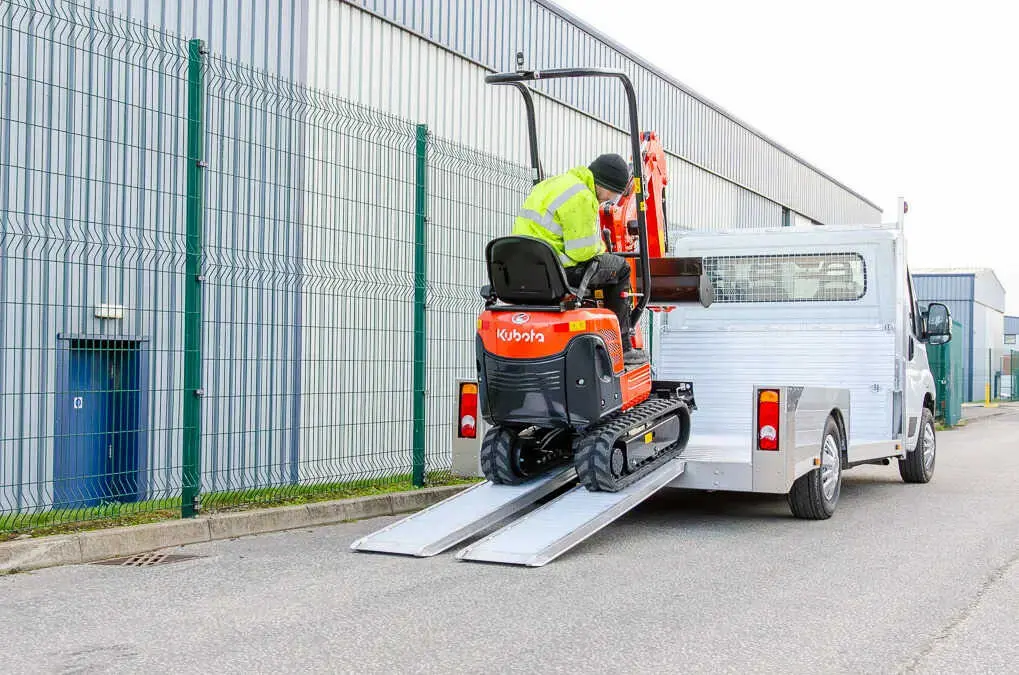Understanding Payload Capacity in Commercial Vehicles
August 20, 2025
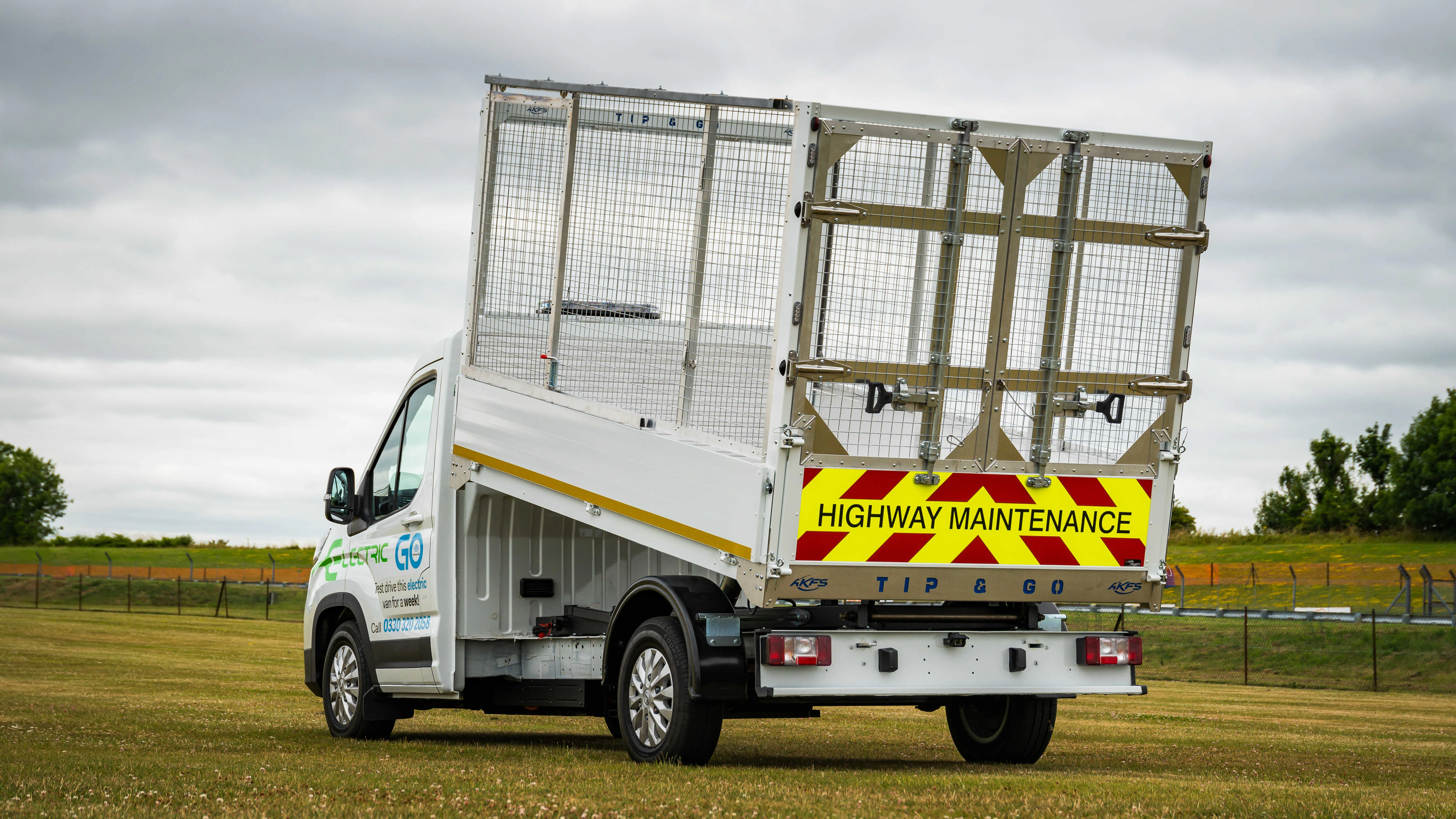
For any business that relies on commercial vehicles, understanding payload capacity is fundamental. This is about more than simply knowing how much weight your vehicle can carry - it’s also about safety, operational efficiency and compliance with the law. If you get this wrong, the consequences can be costly, from fines and vehicle downtime to increased fuel consumption and, at worst, accidents.
At AKFS Special Vehicles, we believe that payload should never be an afterthought. It underpins how every vehicle in a fleet performs day to day, shaping the safety of operators, the protection of equipment, and the profitability of operations. With over 30 years of experience, our team designs vehicles with payload at the forefront, so our customers can be assured they’re working with solutions that balance capacity, durability, and compliance.
What is Payload Capacity?
Payload capacity refers to the maximum weight a vehicle can safely carry, including cargo, passengers, and any additional equipment or modifications. It’s calculated by taking the vehicle’s Gross Vehicle Weight (GVW) and subtracting its unladen (kerb) weight.
For example:
- A vehicle with a GVW of 3,500 kg and an unladen weight of 2,000 kg has a payload of 1,500 kg.
That 1,500 kg must account for everything: tools, goods, machinery, even people. Knowing this number ensures the vehicle is used within its design limits, protecting both operators and the public.
Why is Payload Capacity So Important?
Understanding payload is about far more than numbers on a specification sheet. It has a direct influence on safety, efficiency, and compliance. When a vehicle is overloaded, every core component, from the chassis and suspension to the tyres and brakes, is placed under excessive strain. This can reduce stopping distances, make handling unstable, and significantly increase the risk of tyre blowouts. In busy areas, such as city centres, where vehicles are constantly stopping and starting, maintaining stability and reliable braking performance is critical to keeping both operators and the public safe.
Efficiency is another key consideration. An overloaded vehicle will inevitably consume more fuel, wear tyres and components more quickly, and be more prone to unplanned downtime. These factors combine to increase running costs and reduce the reliability of a fleet, which can have a direct impact on profitability. Businesses that depend on their vehicles day in, day out, simply cannot afford that kind of inefficiency.
Finally, there are serious legal implications. Operating a vehicle beyond its payload capacity is against the law, with consequences ranging from fines and penalty points to the loss of an O-licence. Persistent non-compliance doesn’t just put your business at risk of enforcement action, it can also cause long-term damage to its reputation.
All in all, payload management isn’t optional. It’s a critical factor in safe, efficient, and legally compliant fleet operations that your business must follow.
How Payload Affects Different Vehicle Types
Payload considerations vary significantly depending on the type of commercial vehicle and its intended use. For instance, a small van used for parcel deliveries will have different payload demands than a heavy plant carrier or a car transporter.
For businesses using Plant & Tool Hire Vehicles, the payload is about the weight of heavy machinery and equipment. Vehicles like our Iveco Daily Heavy Plant Carrier are specifically designed with a robust chassis to handle substantial loads, ensuring that plant and tools can be transported safely and efficiently. If the payload is miscalculated, it could compromise the structural integrity of the vehicle or the safety of the equipment being moved.
When it comes to Traffic Management Vehicles, payload capacity includes not only equipment like cones, signs, and barriers but also the weight of any on-board systems and sometimes even crew members. The Drop & Go® Urban Traffic Management Vehicle, for example, is engineered to carry necessary traffic management gear while maintaining stability and manoeuvrability in urban settings. Understanding its specific payload helps ensure all required equipment can be carried without exceeding limits.
For Car Transporters, the payload is the weight of the vehicles being transported. Whether it is an Ultra® Single Car Transporter or a larger Iveco Enclosed Vehicle Transporter, the payload dictates the number and type of cars that can be carried. Exceeding this limit can cause damage to both the car transporter and vehicles onboard, which can also compromise stability during transit, particularly at speed or when braking.
In Grounds Maintenance Vehicles, such as the Plant & Go® Landscaper or Load & Go® Grounds Maintenance Vehicles, payload relates to the various landscaping equipment, soil, waste and tools onboard. Due to their unique nature, these vehicles need sufficient capacity for bulk materials while remaining capable of operating in various terrains. Similarly, our Tip & Go Tipping Dropside is designed for easy loading and unloading of bulk materials, but always within its specified payload.
Finally, for Council and Utilities Vehicles like the Dropside Vehicle or the Transit Utility Vehicle, payload capacity is about carrying construction materials, tools, and sometimes even smaller plant equipment. These vehicles are built to be robust, but their payload limit is a key factor for site efficiency and safety.
Managing Payload Effectively
So, how do operators make sure payload remains under control? It all starts with choosing the right vehicle for your business’ needs. Matching a vehicle’s capacity to the typical loads it will carry is fundamental, and in many cases it is better to choose a slightly higher-capacity model if cargo is often close to the limit. This not only provides greater flexibility but also ensures safety and compliance are never compromised.
We’d also encourage regular weighing of vehicles. Many operators use weighbridges to confirm their vehicles are within limits before leaving site, which is particularly valuable when carrying variable loads. This practice offers peace of mind that operations remain compliant and avoids the risk of fines or downtime caused by unexpected enforcement checks.
Equally important is ensuring that staff are well-trained. Drivers and loaders need to understand the risks of overloading and the importance of distributing weight evenly across the vehicle. Even when total payload is within the specified limit, poor weight distribution can still cause handling issues and create unnecessary hazards.
If your vehicle has any modifications (tool lockers, racks, specialist systems etc.) these must be accounted for too. These permanent fixtures reduce the available payload for cargo and must always be factored into calculations.
Finally, accurate record-keeping underpins good payload management. Keeping track of vehicle weights, payload usage, and loading practices not only supports compliance but also helps identify trends and prevent costly mistakes. By combining the right vehicle choice with careful monitoring and sound operational practices, businesses can ensure their fleets operate safely, efficiently, and within the law.
The AKFS Approach to Payload
At AKFS, we engineer every vehicle with payload at its core. Our vehicle conversions are lightweight yet incredibly strong, designed to maximise available capacity without compromising safety or durability. We know that every kilogram matters, whether it’s additional tools in a council and utilities vehicle, plant equipment on a carrier, or cones and barriers in a traffic management van.
To give operators complete confidence, our specifications are clear and precise, making it easy to understand exactly what each vehicle can do. And because no two businesses operate in the same way, our team can tailor solutions to meet specific needs, helping fleets run more efficiently, more safely, and more profitably.
If you’d like to explore how we can help you optimise payload across your fleet, get in touch with us today. Our expert team is ready to guide you to the right solution for your business’ fleet.
You Might Also Be Interested In
Get In Touch With A Product Specialist Today
Here at AKFS our team of professionals are ready to answer any queries you may have. Get in touch or download a brochure to find out more today.


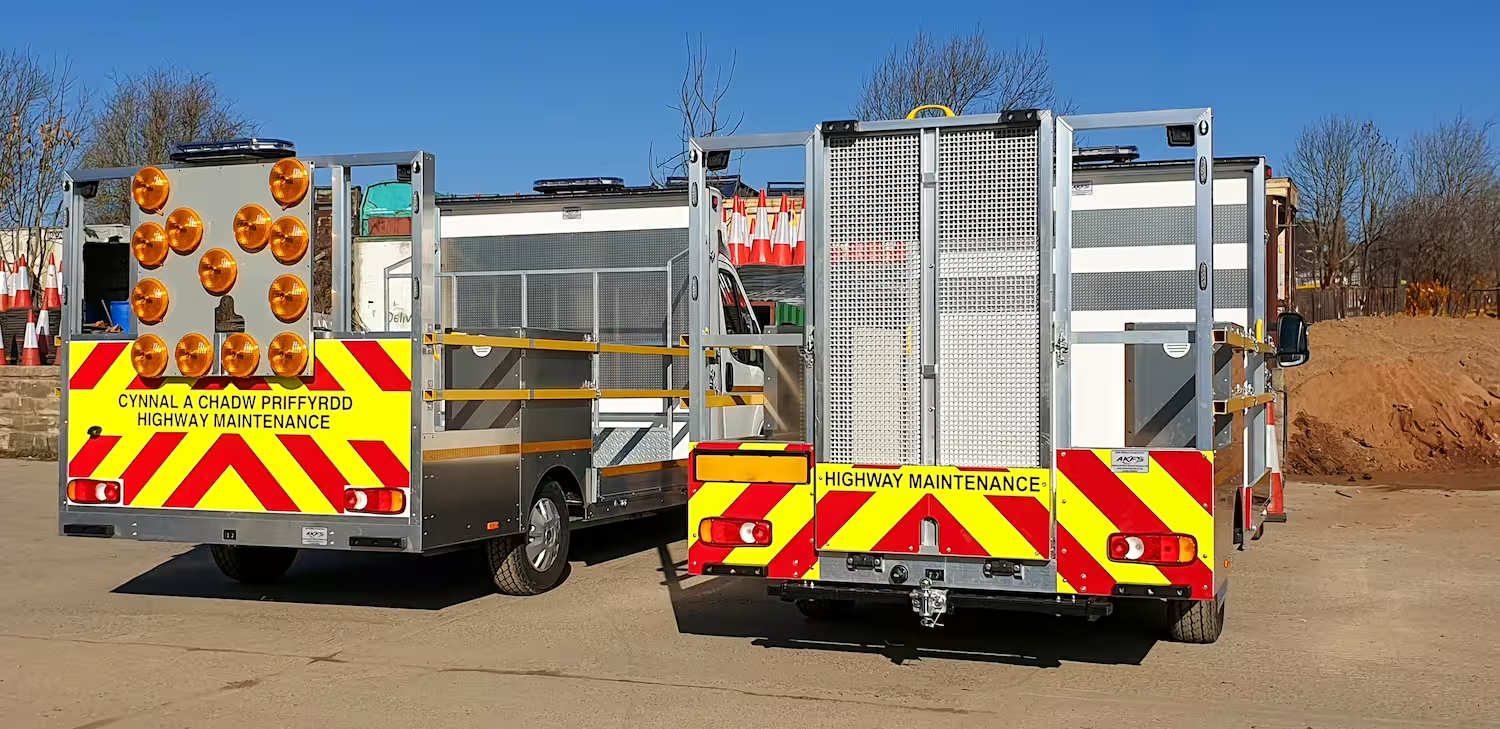
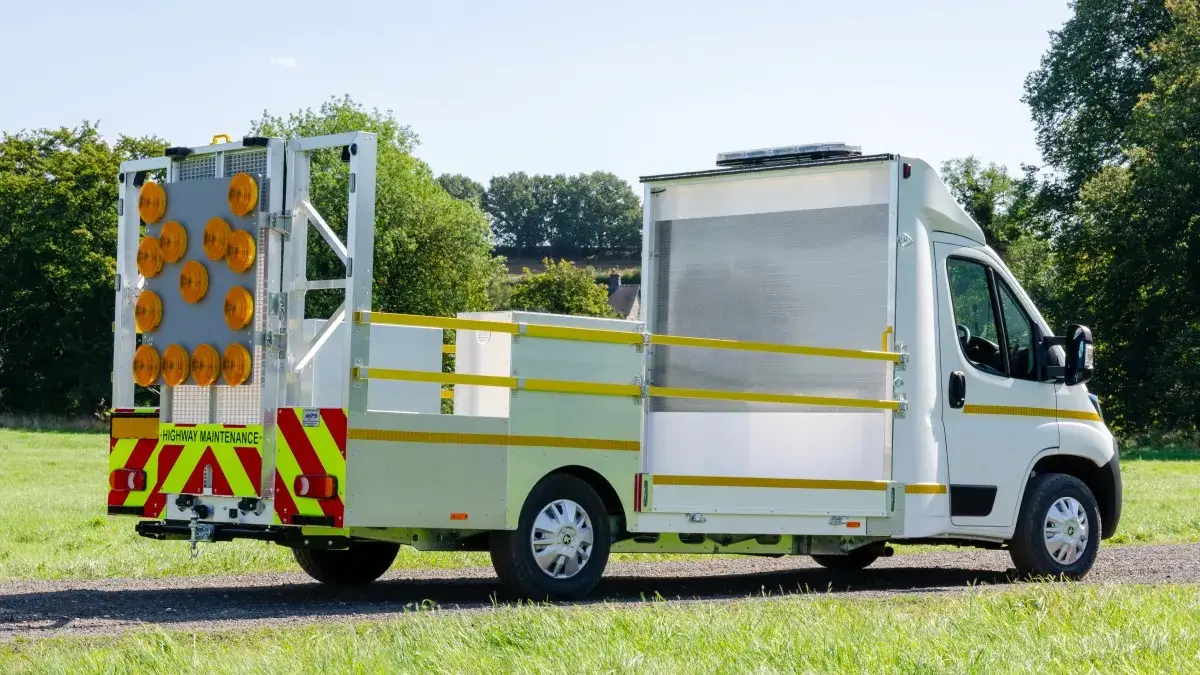
.webp)
